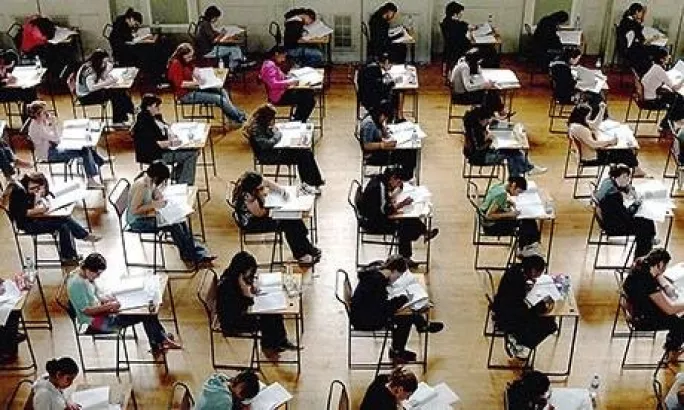Early GCSE entries fall dramatically
Top-down changes to GCSEs and league tables have had an instant impact in schools, new statistics show, with a dramatic decline in early entries and a big switch to IGCSE in English.
Michael Gove’s announcement in September that future school league tables would only include pupils’ first attempt at a GCSE, rather than their best effort provoked consternation among many teachers.
But Ofqual figures released this morning suggested that the secretary of state’s decision has had the desired effect, with the number of pupils in Year 10 or below taking GCSEs this summer dropping to 505,000. That is a 40 per cent decline from last summer’s 842,000.
In maths alone, early entries had dropped by 82 per cent, while in English it was down 86 per cent and English language was down 81 per cent. English literature was a notable exception, with a 134 per cent increase in early entries.
Education minister Elizabeth Truss said: “Children were being speculatively entered for GCSEs in the hope they could ‘bank’ a C grade and then move on to other subjects.
“If they didn’t get a C, they were entered again and again until they did. Often this was not being done in the child’s best interests but to help schools’ league table rankings. That cannot be right.
“It was essential we took action and today’s figures vindicate our decision - many more pupils are now taking their GCSEs at the right time, having studied it fully, and when they are likely to achieve the best grade they can.”
But Brian Lightman, general secretary of the Association of School and College Leaders, said it was “too early to judge” whether the drop in early entries was a good thing.
“It may be that some pupils who have not had a chance to enter early will lose out,” he said. “We don’t know.”
However, there is nothing to prevent schools from continuing to enter pupils early. The government has only altered what can count towards league tables. But Mr Lightman said the change remained “an enormous concern”.
“What we still want to see is the full information published - the final results as well as the first results and it is then that judgements can be made about whether the entry policies of the schools are effective,” he said.
“If parents are judging a school based on its results, then to publish a set of statistics that is incomplete is misleading.”
Ofqual’s statistics show a 4 per cent decline in overall GCSE entries to 5,089,000 - much of which can be explained by a fall in pupil numbers. But there has also been a 95 per cent rise in IGCSE entries in summer 2014, to 294,000.
Much of the switch took place in English and English language. GCSEs in those subjects saw a 28 per cent fall, while IGCSE English language enjoyed a 133 per cent rise in entries.
Ofqual believes this switch may be schools avoiding changes that it introduced to GCSE English following the 2012 grading controversy, which the watchdog blamed on a poorly-designed qualification.
From this summer, speaking and listening no longer contributes to the final grade and written exams are worth 60 per cent of the GCSE - compared to 40 per cent previously.
Mr Lightman said that he believed schools are also moving to IGCSEs because of a general lack confidence in GCSEs following the 2012 controversy, when teachers believed that many English results were unfairly downgraded.
“It is very unpredictable now to know what the final grade of a pupil might be,” he said. “In the past if you marked a piece of work, you could make a professional judgment very easily as to what sort of grade the pupil was heading for.”
“We have had a lot of unexpected results over the last couple of years and people have lost a lot of their confidence to be able to do that, whereas with the IGCSE some schools feel more confident.”
He said schools were also switching because the IGCSE gave them a coursework option.
The academic subjects that qualify for the English Baccalaureate league table measure - English and English language, German and the three separate sciences - all saw falls in GCSE entries.
But GCSEs in science and additional science, English literature, maths, history, geography, French and Spanish were up.
Ms Truss said: “This is further confirmation that the EBac has reversed the decline in the study of academic subjects at GCSE.”
Keep reading for just £1 per month
You've reached your limit of free articles this month. Subscribe for £1 per month for three months and get:
- Unlimited access to all Tes magazine content
- Exclusive subscriber-only stories
- Award-winning email newsletters




